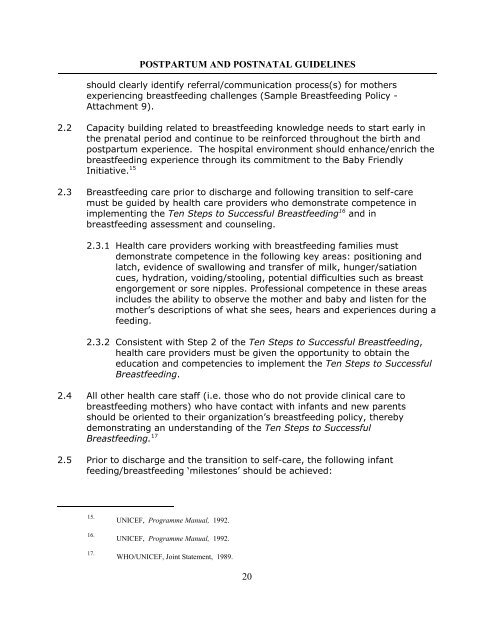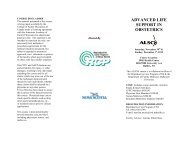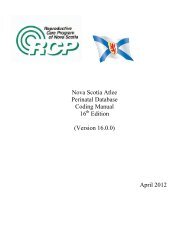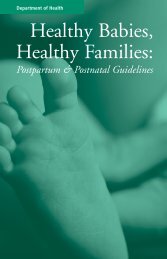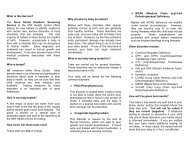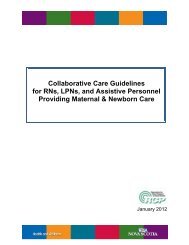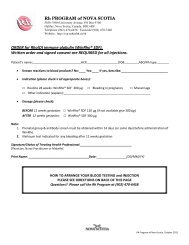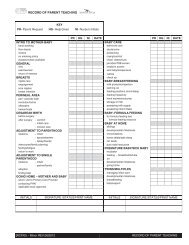Postpartum & Postnatal Guidelines - Reproductive Care Program of ...
Postpartum & Postnatal Guidelines - Reproductive Care Program of ...
Postpartum & Postnatal Guidelines - Reproductive Care Program of ...
You also want an ePaper? Increase the reach of your titles
YUMPU automatically turns print PDFs into web optimized ePapers that Google loves.
POSTPARTUM AND POSTNATAL GUIDELINES<br />
should clearly identify referral/communication process(s) for mothers<br />
experiencing breastfeeding challenges (Sample Breastfeeding Policy -<br />
Attachment 9).<br />
2.2 Capacity building related to breastfeeding knowledge needs to start early in<br />
the prenatal period and continue to be reinforced throughout the birth and<br />
postpartum experience. The hospital environment should enhance/enrich the<br />
breastfeeding experience through its commitment to the Baby Friendly<br />
Initiative. 15<br />
2.3 Breastfeeding care prior to discharge and following transition to self-care<br />
must be guided by health care providers who demonstrate competence in<br />
implementing the Ten Steps to Successful Breastfeeding 16 and in<br />
breastfeeding assessment and counseling.<br />
2.3.1 Health care providers working with breastfeeding families must<br />
demonstrate competence in the following key areas: positioning and<br />
latch, evidence <strong>of</strong> swallowing and transfer <strong>of</strong> milk, hunger/satiation<br />
cues, hydration, voiding/stooling, potential difficulties such as breast<br />
engorgement or sore nipples. Pr<strong>of</strong>essional competence in these areas<br />
includes the ability to observe the mother and baby and listen for the<br />
mother’s descriptions <strong>of</strong> what she sees, hears and experiences during a<br />
feeding.<br />
2.3.2 Consistent with Step 2 <strong>of</strong> the Ten Steps to Successful Breastfeeding,<br />
health care providers must be given the opportunity to obtain the<br />
education and competencies to implement the Ten Steps to Successful<br />
Breastfeeding.<br />
2.4 All other health care staff (i.e. those who do not provide clinical care to<br />
breastfeeding mothers) who have contact with infants and new parents<br />
should be oriented to their organization’s breastfeeding policy, thereby<br />
demonstrating an understanding <strong>of</strong> the Ten Steps to Successful<br />
Breastfeeding. 17<br />
2.5 Prior to discharge and the transition to self-care, the following infant<br />
feeding/breastfeeding ‘milestones’ should be achieved:<br />
15.<br />
16.<br />
17.<br />
UNICEF, <strong>Program</strong>me Manual, 1992.<br />
UNICEF, <strong>Program</strong>me Manual, 1992.<br />
WHO/UNICEF, Joint Statement, 1989.<br />
20


